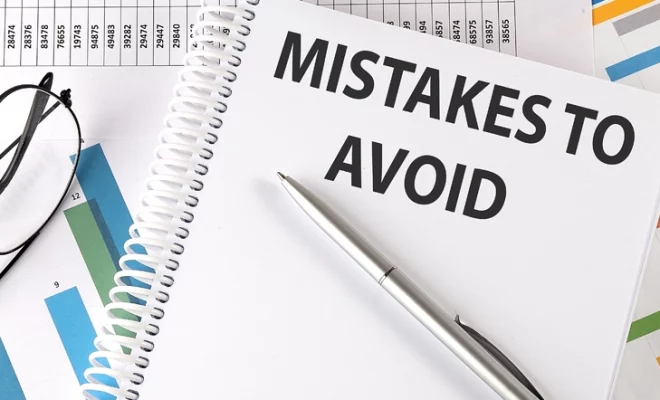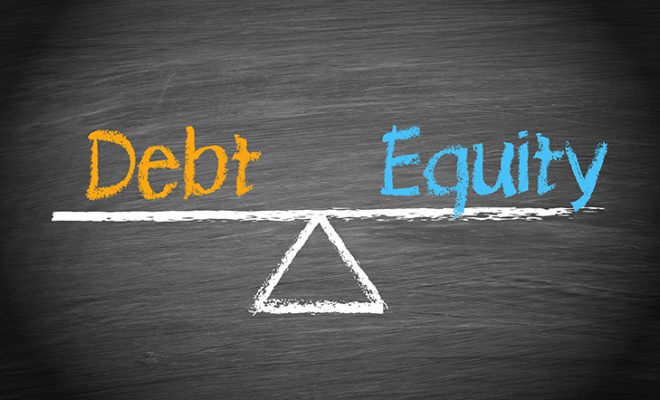Avoid Making These Mistakes to Safeguard Your Wealth

Earning money is just the beginning. Keeping it safe, growing it wisely, and using it to support your future takes careful planning.
Wealth management isn’t only for the ultra-rich. It plays a crucial role in helping people achieve financial stability, prepare for retirement, and leave a lasting legacy for their families.
Yet even the best financial plans can stumble. Small, often overlooked mistakes can undo years of hard work.
In this article, we’ll walk through some of the most common investment mistakes retirees make.
By understanding these risks now, you can make smarter choices, protect what you’ve built, and feel more confident about your financial future.
Table of Contents
Below are some of the mistakes you should avoid making to secure your wealth:
Mistake #1: Not diversifying your investments
Investing too much of your money into one sector, one type of asset, or one region can expose your wealth to unnecessary risk.
When your portfolio leans too heavily in one direction, even a small downturn can lead to large losses.
Take the year 2022, for example. While the S&P 500 fell by 19.4%, technology stocks were hit much harder. The Dow Jones U.S. Technology Index dropped more than 35%. NASDAQ fell over 33%. Giants like Meta lost nearly two-thirds of their value. Tesla and Amazon also suffered steep declines. Investors who concentrated their portfolios in tech saw their savings take a painful hit.
That’s why diversification matters.
By spreading your investments across different asset classes like stocks, bonds, real estate, and alternatives, you reduce the impact of any one market struggling. Diversifying across industries and regions also helps smooth out returns over time, giving your portfolio a better chance to grow steadily without major setbacks.
Mistake #2: Not having an estate plan in place
Estate planning is essential for protecting what you’ve worked hard to build. Also, contrary to popular perception, it is not something exclusively for the wealthy.
A good estate plan ensures your assets go where you want them to. It can also help reduce taxes and make life easier for your family during difficult times.
Yet, many people put it off.
A 2023 survey by Law Depot found that 73% of Americans didn’t have an estate plan. There was no will, trust, or clear instructions for how their assets should be handled in the event of their demise.
Without a plan, your estate could end up tied in probate, a long, expensive legal process.
Even worse, the state decides how your wealth gets divided. For instance, if you pass away without a will in California, your assets are split between your spouse and children based on state formulas, not necessarily as per your wishes.
So one mistake could mean a lifetime of savings tangled up or lost.
The good news? It’s easier to start than you might think. Here’s what to focus on:
- List your assets: Include properties, investments, savings, retirement accounts, insurance, and personal valuables.
- Name your beneficiaries: Especially for accounts like 401(k)s, IRAs, and insurance policies.
- Draft a will: Choose how your assets will be distributed and name guardians if you have minor children.
- Consider a trust: A revocable living trust can help your estate avoid probate and offer more control.
- Assign a power of attorney: Pick someone you trust to handle your finances or healthcare decisions if needed.
- Set up advance directives: Outline your healthcare wishes in case you are unable to communicate them yourself in the future.
- Review regularly: Update your plan after major life events like marriage, divorce, births, or major financial changes.
- Work with a professional: Estate laws vary by state. A qualified local attorney can help you create a plan that honors your wishes and minimizes taxes.
Mistake #3: Not keeping emotions out of investing
Emotions and investing don’t mix well. It’s natural to feel worried when markets fall and tempting to chase fast gains when stocks are soaring. But reacting emotionally can often cause more harm than good.
Look at what happened in early 2020. Between February 20th and March 23rd, 2020, the S&P 500 dropped nearly 34%. It was one of the fastest declines in market history. Many investors panicked and sold their stocks. But by August of the same year, the market had recovered all its losses and even climbed higher. Those who stayed invested came out ahead. However, those who sold locked in their losses permanently.
The same is true for chasing “hot” stocks. Remember GameStop in January 2021?
The stock soared from $145 to over $469 in a single day, then quickly crashed. Many latecomers who bought at the peak suffered big losses when the price dropped.
To protect your wealth, it helps to create a clear investment plan. Determine your goals, timeline, and risk tolerance before you invest. Then stick to that plan, even when the market gets rough.
Also, rebalance your portfolio regularly. If one type of investment grows disproportionately large compared to others, consider selling a portion and redistributing it across your plan. Doing so keeps your investments in line with your original goals.
Finally, working with a trusted financial advisor can make a big difference. An advisor can help you stay focused during market swings and avoid making emotional decisions that could hurt your long-term progress.
Mistake #4: Not setting clear financial goals
Saving for “someday” in the future isn’t enough. Without clear financial goals, it’s easy to get off track.
You might save inconsistently. Or spend more than you should. Over time, this lack of direction can leave you unprepared when you need money most.
For example, 37% of U.S. adults had to tap into their emergency savings in the past year. Of those, 80% used their savings to cover basic expenses such as bills, repairs, and medical costs. Since many folks did not have an emergency fund, they found themselves to be financially vulnerable.
Clear goals give you a roadmap. They help you stay focused and guide your spending and saving decisions. They also make long-term financial goals, such as saving for retirement or buying a home, feel less overwhelming.
Here’s how goals can look at different stages of life:
- In your 20s and 30s: During this stage, you may build an emergency fund, pay off high-interest debt, and start saving for a home.
- In your 40s and 50s: Here, you may focus on maximizing retirement contributions, saving for children’s education, and planning for healthcare needs.
- In your 60s: As you near retirement, you may shift toward income planning, optimizing tax strategies, and leaving a financial legacy.
The clearer your goals, the easier it is to avoid investment mistakes that can chip away at your wealth.
Mistake #5: Not accounting for tax implications on withdrawals
Taxes don’t end when you retire. How you withdraw money from your accounts can make a big difference in what you owe each year and how long your savings last.
Many retirees start withdrawing from traditional IRAs or 401(k)s early. At first glance, this may seem like the right move. However, tapping into tax-deferred accounts too soon can push your taxable income higher than necessary. This might push you into a higher tax bracket or cause more of your Social Security benefits to be taxed.
The result?
You pay more taxes earlier, also losing years of potential tax-deferred growth. This could also mean that you run through your retirement savings faster than planned.
A more tax-efficient approach might look like this:
- Start withdrawing from taxable accounts first: Selling investments here often triggers lower long-term capital gains taxes.
- Move to tax-deferred accounts next: Staying invested in your 401(k) or IRA to give more time for the funds to grow can help lessen your tax burden later.
- Preserve tax-free accounts for last: Accounts like Roth IRAs grow tax-free and offer flexibility when unexpected expenses come up.
Choosing the right withdrawal order can help stretch your savings, reduce your tax bills, and make your retirement income more predictable.
Mistake #6: Not seeking professional guidance
Doing it yourself can feel empowering because you stay in control and also save on fees. However, financial planning isn’t as simple as managing a budget or picking a few investments. You have to stay on top of changing tax laws and shifting market conditions. Additionally, estate planning rules vary by state and grow more complicated with time.
One small mistake, like missing a tax strategy, skipping a portfolio rebalance, or forgetting to update beneficiaries, may cost you thousands of dollars. And the worst part is that it might not become obvious until it’s too late to fix.
Wealth management today involves many aspects, such as investment planning, tax optimization, estate management, risk management, and more. Balancing all of these without expert help can leave critical gaps in your plan.
A trusted financial advisor can help you:
- Set clear, realistic goals
- Build a tailored financial strategy
- Adjust your plan as per life changes or market volatility
- Avoid costly mistakes that are easy to miss
Safeguarding your wealth goes beyond chasing the biggest returns. It involves making smart, steady decisions that protect what you’ve worked hard to build.
Mistakes such as poor diversification, emotional investing, ignoring taxes, or delaying estate planning may hurt your financial future. But the good news is that every mistake you avoid making is a win.
Being intentional with your choices today can lead to greater financial security tomorrow.
Sometimes, the smartest move is knowing when to seek help. A qualified financial advisor can offer the guidance you need, spot risks you might miss, and help create a strategy built around your life and your goals.


















